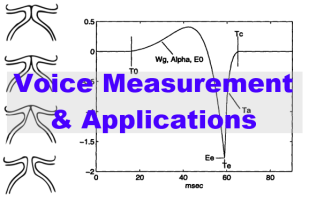The Centre brings together MSSL's technological and analytical capabilities, and general Space awareness with UCL's strengths in biomedicine.
Current Projects:
Human Body Observatory for ICU
iVOICE
MARS 500
Human Body Observatory for ICU
Human Body Observatory for Intensive Care Units is a virtual intensive care system that enables clinicians to tap onto experience of thousands other clinicians encountering the same situation with their patients and investigating various treatment interventions to prescribe the most suitable one to ensure positive outcome for the patient.
Objectives:
Intensive care is an expensive and limited resource even in rich healthcare systems. Despite improvements in outcome in the last decade, up to one third of patients admitted to an intensive care unit will be dead 28 days later.
Substantial additional outcome improvements are unlikely to be driven by new drugs or devices, but by innovative approaches to patient care.
More real-time high-resolution biomedical data are gathered and displayed in Intensive Care than any other area of medical practice. However, treatment decisions are currently made by visualisation of only short-term data trends.
The purpose of this project is to leverage several decades of experience and expertise of the physics and astronomy community and develop intelligent monitoring algorithms.
Clinicians can use these to extract, analyse and communicate data in a collaborative manner, across multiple ICU cites and strengthen clinical outcomes.
Future clinicians in real-time will be able to access experience of thousands of clinicians across multiple hospitals across the globe and millions of patient cases to make the decision on the most promising treatment intervention, with greater accuracy in prognostication, tailored to the patient's unique history and current conditions.
Contact
- Prof Louise Harra
PhD candidate involved in the Human Body Observatory for ICU
- Tom Pollard
iVOICE
iVOICE – integrated VIOce analysis of satellite Communications Embedded in time and safety-critical environment, funded by the European Space Agency (ESA).
Objectives of iVOICE

One innovative and very promising way of detecting this mental stain and fatigue is by analysing voice communication.
This study evaluates improvements to existing voice analysis technologies, coupled with high fidelity communications signal and GPS data, aiming to detect situations of mental strain and fatigue in operators and offer a new technology – iVOICE.
The project focus is the potential to develop services linked to high-risk and high-stress environments or dislocated domains, including heavy equipment operation, ground and air transportation for private and commercial use.
The applications for future use will range from distributed health care for remotely living populations to peace-keeping communication and navigation services.
- Industrial Collaborators
Content placeholder
- UCL Collaborators
Speech Hearing And Phonetic Sciences UCL Division Of Psychology And Language Sciences Faculty Of Brain Sciences
Attention and Cognitive Control Lab UCL Institute of Cognitive Neuroscience
- iVOICE Workshop
iVOICE Workshop
Department hosting Voice Measurement & Applications Workshop UCL, London, UK, 16 May 2014Dr. Mark Huckvale, Dept. Speech, Hearing and Phonetic Sciences, UCL Dr. Iya Whiteley, Centre for Space Medicine, UCL
Free workshop Friday 16 May 2014
Free one-day, European Space Agency funded, workshop aimed to bring together experts in this multi-disciplinary field.
Experts in speech science, speech signal processing, machine learning, clinical measurement of voice, and commercial applications will be represented in a day of talks and discussion.
The goal of the workshop is to share state of the art techniques, to discuss the problems and challenges we face, and to build collaborations for future exploitation of voice measurement technology.
For registration and more information please follow the link in the title above.
The workshop is being organised by:
Publications
Contact
- Dr Iya Whiteley e: i.whiteley [at] ucl.ac.uk
UCL Project Team
MARS 500
“Mars-500” is an international large scale collaboration on a series of experiments replicating to the degree possible on Earth, a manned flight to our neighbouring Red planet.

This experiment is being conducted by the State scientific centre of the Russian Federation – Institute for Bio-Medical Problems under aegis of ROSCOSMOS and Russian Academy of Sciences.
CSM is collaborating with the Institute for Bio-Medical Problems, the Russian Academy of Sciences on analysis of data from the longest MARS-500 experiment, 520-day duration isolation (April 2010 – October 2011).
Contact
- Dr Mark Huckvale e: M.Huckvale [at] ucl.ac.uk
- Dr Iya Whiteley e: iya.whiteley [at] googlemail.com
Student involved in the MARS-500 project
- Olivia Adams
 Close
Close


